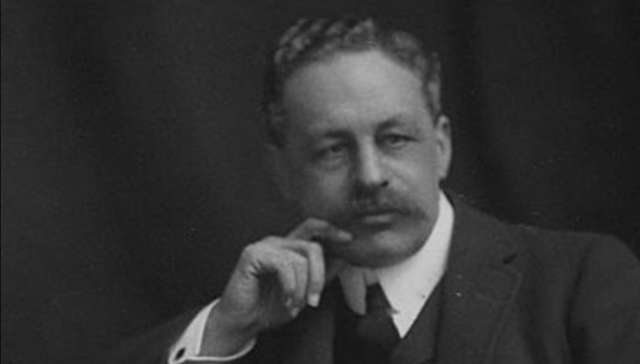THE SHADOW OF MACKINDER: HOW EARLY-20TH-CENTURY BRITISH IMPERIAL GEOPOLITICS UNDERLIES THE PERSPECTIVE OF ALL SIDES IN THE UKRAINE CRISIS
A specter is haunting the world: The specter of British imperial geopolitics.
Few in the global chatter about world politics, in shock over the boldness of the Russian move to destroy the military, intelligence, logistical and administrative sovereignty of Ukraine, appreciate the degree to which both the official Russian geopolitical perspective and the implicit, matter-of-fact perception of the geo-spatial reality on part of "the West" rely on a more-than-a-century old, unabashedly imperial, and imperialist, set of ideas from Britain, "the" leading colonial "great power" of the time. Indeed, it is enough to observe the birth of British geopolitics as it happened when Halford C. Mackinder--one of the founders and, at the time, Director, of the London School of Economics--gave a speech in the Royal Geographical Society in early 1904, with the title "The Geographical Pivot of History."
Mackinder hit the proverbial geopolitical nail on the head. His paper turned to be so consequential (some might say a little overly so) that it has been re-printed in a facsimile version in The Geographical Journal in 2004. It continues to be one of the first required readings in university courses on geopolitics / political geography.
- develops a geographical-determinist view of imperial geopolitics and statecraft ("a correlation between the larger geographical and the larger historical generalizations" (p. 422));
- argues that "[t]he most remarkable contrast in the political map of modern Europe is that presented by the vast area of Russia occupying half the Continent and the group of smaller territories tenanted by the Western Powers" (p. 423);
- introduces the terms "the geographical pivot of history" (or just "the pivot"), "the Heartland" and the "World-Island", features he observes in scrutinizing the physical-geography maps of
- "Euro-Asia", where, and I quote, "Nomad" "hordes [. . .] gathered their first force 3000 miles on the high steppes of Mongolia [so that] all the settled margins of the Old World sooner or later felt the expansive force of mobile power originating in the steppe" (p. 430).
- This "Euro-Asia" was "a continuous land [. . .] of 21 million square miles, or more than twice the area of Europe" (p. 431). Attention to "Euro-Asia" is crucial, although
- "mobility over the ocean is a natural rival of horse and camel mobility in the heart of the continent [and Columbus' advances in maritime navigation] "gave Christendom [. . .] the widest possible mobility of power" (p. 432), but, importantly,
- "the land power still remains [and, as] Russia has organized the Cossacks and, emerging from her northern forests, has policed the steppe by setting her own nomads to meet the Tartar nomads" (p. 433). Consequently,
- "the centre of population of All European Russia now lies south of [the] boundary [between the north and the south of Euro-Asia, so that] Odessa has here risen to importance with the rapidity of an American city" (p. 434).
- the Russian state's striking oversensitivity to borderlands and variations of power as linked to physical distance, in general;
- it goes a long way to contextualize why Nato is so interested in surrounding northern Eurasia;
- it is a key intellectual source to a mythical, ever-renewed, neo-romantic Russian identification with Mackinder's Eurasia-as-pivot, something that explains why Russia's geopolitical authorities think in concentric circles of ever-so-sovereignty-deprived vassal states as the optimal security guarantee for its long term future, while
- "the West's" identification with Mackinder's geospatial concerns in warcraft contributes a great deal to explaining "the West's" reluctance / refusal "to get bogged down" in any effective defensive effort on behalf of Ukraine, its proxy geopolitical near-ally (beyond the usual advisors and military hardware of course), in spite of repeated assurances to the contrary.
- a refusal to honor its explicit promise to Russia of "no encroachment", and
- a failure to honor its "security commitment" to Ukraine in exchange for the latter having given up its nuclear arsenal . . .




Comments
Post a Comment